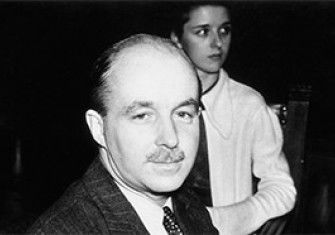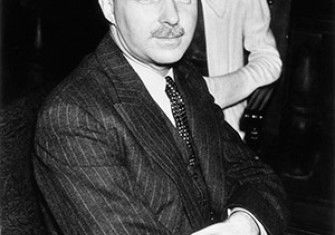New revelations on the Cambridge Spy Ring
Newly released evidence on the Cambridge Spies reveals how, among other revelations, inaction and incompetence on the part of the authorities enabled Guy Burgess and Donald Maclean to make their escape to Moscow.

It is more than 65 years since Guy Burgess and Donald Maclean fled from the latter’s home in Kent to the Soviet Union on Friday 25th May, 1951, but the story of the Cambridge Spies continues to fascinate. Why should clever men at the heart of the Establishment, who enjoyed its trappings, seek to betray it? Why, given their drunken and promiscuous lifestyles, were they never caught and are there still spies to be uncovered?
The recent release of some 400 files by the Foreign Office and MI5 – the first full-scale release of documents on the case – should have cleared up some of the mysteries even though a fifth of the release is redacted or remains unreleased.
The new releases provide more detail on the investigations into their disappearance and the introduction of new security measures. They provide chapter and verse on Burgess’s engagements to Clarissa Churchill – niece of Winston Churchill and wife of Anthony Eden – and Esther Whitfield, Kim Philby’s secretary and mistress. They confirm Burgess’ ‘roaring affair’ at Cambridge with Maclean, that he had unsuccessfully tried to stay in MI5 after the Second World War, how he came close to being sacked several times from the Foreign Office for poor work and that at his death he was writing a memoir which named Blunt ‘as having been the man who warned him that the security net was closing around him’; a memoir which vanished on his death. There is also a copy of a memoir by Philby written some 15 years before his 1968 autobiography My Silent War.
Yet the new files raise more questions than they answer. Contrary to the official story – that the two men’s disappearance was only noticed on Monday 28th May – it turns out the British government knew about the flight much earlier. Maclean, whose name was on a watch list, had been clocked by an immigration official who immediately rang MI5’s headquarters in London, where a number of officers were planning their interview with Maclean scheduled for that Monday. In a turn of bad luck or incompetence, Dick White, the senior MI5 officer who was deputed to follow and confront the missing diplomats, found his passport was out of date.
Jane Portal (now Lady Williams, the mother of the Archbishop of Canterbury, Justin Welby), then working as one of Churchill’s secretaries, took a call from the resident clerk at the Foreign Office early in the evening of Saturday 26th May at Chartwell, Churchill’s country house near Maclean’s home. ‘So I put the call through and listened in as it was our duty to make a note. I remember the resident saying, “Your neighbour has flown".’ The official response, even after these recent releases, remains the same: that nothing was known about their disappearance until Monday 28th May.
The British authorities’ actions after the disappearance are equally perplexing. Only late on Monday, after approval had been granted by the Home Secretary for the men’s passports to be seized, were alerts sent out across the Continent to locate the spies. The Foreign Secretary, Herbert Morrison, was only informed four days after their disappearance. The story was kept out of the press until a leak to the Daily Express made the story front-page news on 7th June. By then the two men were safely in Moscow.
Other mysteries remain.
The official story is Burgess only joined British Intelligence when he was seconded to the Joint Broadcasting Committee, a secret propaganda organisation, in January 1939, yet there are references in the new files that say, for example. ‘from about 1936 onwards [i.e. before the time of the GRAND organisation] Footman and Burgess were collaborating in the running of an Agent network for MI6’. Despite evidence from people who had worked alongside Burgess in the Information Research Department, a secret propaganda organisation set up in 1948, there is no reference to him working in the department in the files.
It is not only the new information that is illuminating, but also what continues to be withheld: Wilfrid Mann, a colleague in the Washington Embassy who worked on atomic energy intelligence, was named by Andrew Boyle in his 1979 book The Climate of Treason as a Russian spy who was turned and played back. This is confirmed in the unpublished memoir of Sir Patrick Reilly, then the Foreign Office Under-Secretary in charge of Intelligence, who wrote that: ‘That “Basil”, who can easily be identified, was in fact a Soviet spy is true: and also that he was turned round without difficulty.’ There is no mention, however, of Mann in any of the new releases and MI5 maintain they do not have a file on him.
Under the 30-year rule, the Burgess and Maclean material should have been sent to the National Archives and there were great discussions in the Foreign Office in 1982 about what could be released. In the end nothing was, but a recently declassified file lists some 200 files on the case along with details of what they contain. These include the discussions between the head of MI5 and the FBI and debriefs from close colleagues of Burgess, such as Sir Gladwyn Jebb, Sir Robert Mackenzie and the head of the Foreign Office Security Department, Milo Talbot, whom Burgess had coached for the Foreign Office exam. Much of this material is not even mentioned in the new releases, let alone made public.
The new files reveal that suspicions were immediately raised about Philby, Blunt and John Cairncross. Philby was dismissed from MI6 but continued to work for them until his own flight to Moscow in January 1963. Confirmation of Blunt’s treachery only came in 1964 from his fellow Cambridge spy Michael Straight and he was given immunity from prosecution in return for a full confession. In reality, he told British Intelligence nothing they did not know already. Cairncross also confessed in 1964 but was allowed to live quietly abroad until he, like Blunt, was publicly revealed in 1979.
The new releases only deal with Burgess and Maclean. The files on Blunt, Philby, Cairncross and the lesser-known spies, such as Leo Long and Michael Straight, have still to be made public. It is clear the full story of the Cambridge Spies has not yet emerged.
Andrew Lownie is the author of Stalin's Englishman: The Lives of Guy Burgess.






